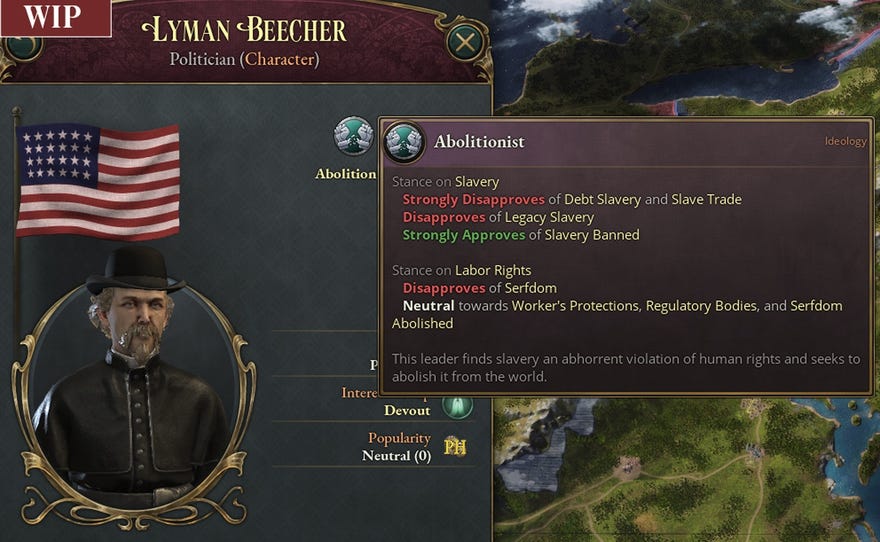Victoria III details its approach to slavery in new dev diary
From populations to laws
The latest development diary post for Victoria III talks in detail about how Paradox's empire builder will deal with the topic of slavery. Extremely carefully, is the answer.
"Slavery is, obviously, a horrific crime against humanity and precisely for this reason, many games that have a slavery-related setting or mechanics will either leave it out of the game or abstract it into something that’s less ‘on the nose’ (for example by simply applying some form of economic bonus at the expense of decreased stability)," begins the post. "For Victoria 3, we don’t think these options work for us for two main reasons."
The post goes on to explain that slavery was a catalyst for several conflicts represented in the game, which would be "bizarrely contextless" if slavery did not play a part, and that through the game's 'Pop system' they're aiming to represent every individual human on the planet from 1836. "So what statement would we be making if we simply wrote all enslaved individuals out of history, or reduced them into an abstract set of modifiers?"
Paradox then dive into detail about how the game's different systems engage with slavery. Buildings can 'employ' slaves for the economic benefit of the building owners, enslaved populations can resist by any means available to them, and abolitionists inside and outside your country can attempt to stop slavery or the slave trade.
Nations can also enact slavery laws, permitting the slave trade, debt slavery, abolishing slavery outright, or allowing "Legacy Slavery", where the slave trade is illegal but not abolished entirely.
The post goes into a lot more detail than my brief summary. In each case, slavery is still ultimately being abstracted into an interactive game system, but it's a more honest attempt to represent a significant topic than is present in most historical games. To its credit, Victoria 2 was better about it than most, too.
In an article on how historical games integrate or ignore slavery, Amanda Kerri wrote for us that by simulating the many consequences of slavery, "Victoria teaches you that slavery in the end causes social issues that modern societies cannot prosper in, and can actually hold back the ideas of social prosperity. While never handled in a deep and profound morality lesson way, it works for a grand strategy game."
Whether Victoria III succeeds, I'm glad it's still trying.




